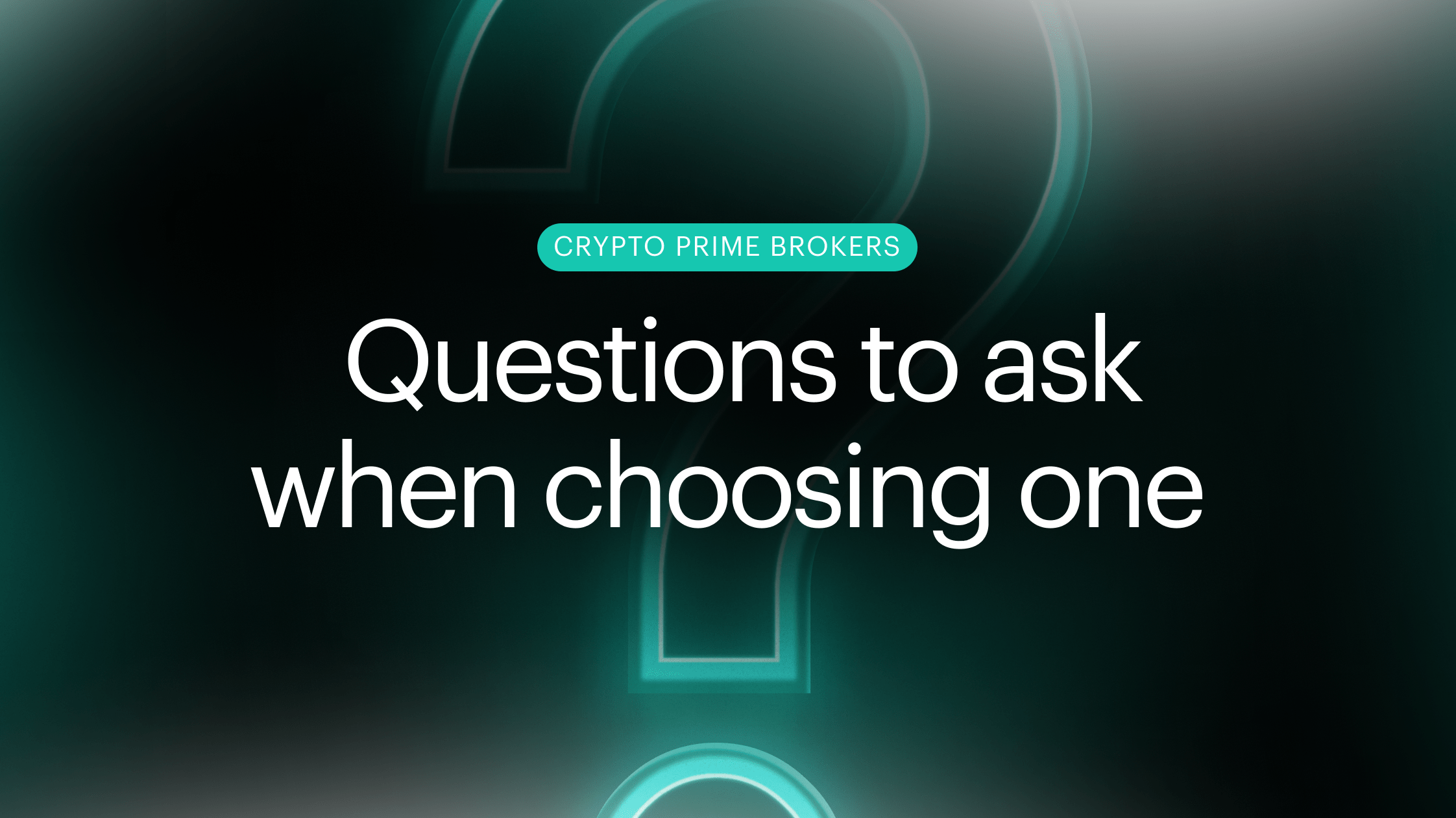
For nearly four decades now, institutional market players in traditional finance have been relying on prime brokers to navigate their relationships with financial services providers to access certain asset classes.
Today, the institutional landscape is increasingly showing interest in digital assets, especially following the approval of multiple high-level spot ETFs in the United States. While regulation remains a fluctuating and often risky side of the crypto market, financial institutions are faced with an imperative need to tap into this asset class. Crypto prime brokers emerge as a solid choice for guidance in these new waters.
In this blog, we look at the crypto prime brokerage definition, key challenges and questions that institutions should pose when choosing a crypto prime broker.
What is a prime broker?
The concept of prime brokerage is undergoing significant adaptation to align with the decentralized nature of the crypto market. Unlike traditional finance where prime brokerage is well-established, offering a comprehensive range of services including custody and liquidity sourcing, the crypto space presents unique challenges that redefine the role of prime brokers.
The term 'prime brokerage' in crypto is currently in flux, with firms offering partial services like custody but not the full suite expected in traditional prime brokerage. This highlights a gap in the market for a true 'one-stop shop' that caters to all the needs of crypto clients.
A distinctive challenge in the crypto market is its fragmentation, with liquidity dispersed across numerous venues, coupled with the requirement for pre-funding at each of these venues. Crypto prime brokers aim to address these challenges by providing unified access to multiple exchanges and enabling efficient capital use through services like cross-margining.
Why do we need crypto prime brokers in crypto?
Prime brokerage services have been pivotal for institutional investors, especially hedge funds, driving their success. Yet, the nascent digital assets sector still grapples with a scarcity of such services for market players eager to delve into the crypto world.
As crypto-native prime brokerage offerings expand, they are expected to attract more institutional investors to the crypto market, potentially catalyzing further growth and benefiting early adopters.
Despite strong expectations for the crypto market capitalization to expand significantly in the years to come, the infrastructure supporting cryptocurrencies remains underdeveloped. The plethora of exchanges poses a challenge for seamless trading across platforms. One potential workaround is the use of an Order and Execution Management System (OEMS), which consolidates data from various exchanges into a single interface. However, this solution falls short in providing the full spectrum of services expected from a traditional prime broker. It still requires the management of multiple exchange accounts and lacks execution control, as order matching occurs externally and depends on the venue's architecture.
This gap underscores a crucial difference from traditional prime brokerage services and, combined with the lack of regulatory protections in the crypto market, may deter larger-scale investors.
7 Things To Consider When Choosing A Crypto Prime Broker
Selecting the right crypto prime broker is a pivotal decision for institutional investors. Here are 7 crucial aspects to consider, ensuring a well-rounded evaluation:
1. Market expertise and stability
The ideal crypto prime broker should not only have a profound understanding of the digital asset market but also demonstrate a proven track record of stability and reliability. Investigate the provider's history in the crypto space, their financial health, and the safeguards they employ to mitigate insolvency risks. Understanding how your assets will be stored and utilized by the broker is also critical.
-
How seasoned is the provider in the crypto space, and what's their track record for stability and reliability?
-
Can they demonstrate robust financial health, and what safeguards are in place to mitigate the risk of insolvency?
-
What mechanisms are employed for asset storage, and how transparent are they about the utilization of your assets?
2. Security protocols and regulatory compliance
Security is paramount in the crypto industry. Ensure that the prime broker adheres to international regulatory standards and employs rigorous security measures. Inquire about their history with independent security audits and the outcomes of such evaluations.
-
Does the broker comply with international regulatory standards, and how rigorous are their security protocols?
-
Are there regular independent security audits, and what have been the outcomes of these evaluations?
-
Have they achieved key compliance milestones like SOC 1 Type 2 and SOC 2 Type 2 certifications?
3. Platform functionality
A top-tier crypto prime broker should offer an integrated platform that seamlessly connects with both decentralized and centralized financial ecosystems, including fiat gateways. The platform should minimize the need for engaging multiple service providers and offer smooth connectivity with various trading venues and liquidity sources.
-
Does the broker provide a holistic platform that integrates seamlessly with both decentralized and centralized financial ecosystems, including fiat gateways?
-
How streamlined is the onboarding process, and can the platform minimize the necessity for multiple service providers?
-
Are there any limitations in terms of connectivity with various trading venues and liquidity sources?
4. Liquidity access and execution efficiency
Depth of liquidity is essential for optimal trade execution. Assess the broker's ability to provide access to deep liquidity pools and their relationships with diverse partners. It's important to understand how the broker ensures the best execution practices and what tools are in place for monitoring and optimizing trade execution.
-
How does the broker ensure optimal access to deep liquidity pools across diverse markets?
-
What relationships and partnerships does the provider have to secure a wide array of trading products and opportunities?
-
How does the broker guarantee best execution practices, and what tools are in place to monitor and optimize this?
5. Client support and service quality
High-touch, personalized service is invaluable in navigating the complex digital asset market. Evaluate the accessibility and quality of the broker's client support, including feedback from existing clients. The presence of dedicated account managers or support teams for bespoke trading strategies and inquiries can significantly enhance the prime brokerage relationship.
-
In what ways does the provider offer high-touch, personalized service to navigate the complexities of the digital asset market?
-
How accessible is the support team, and what has been the client feedback regarding the quality of service and product support?
-
Are there dedicated account managers or support teams to assist with bespoke trading strategies and inquiries?
6. Technological stack and adaptability
The digital asset market is characterized by rapid technological advancements. The right prime broker should be agile, continuously adapting to market innovations and incorporating new technologies into their offerings. Assess the broker's technological roadmap, including planned upgrades and new feature introductions, to gauge their commitment to innovation.
-
How quickly does the prime broker adapt to market innovations and incorporate new technologies into their offerings?
-
Is there a clear roadmap for platform upgrades and the introduction of new features or services?
-
How does the broker leverage technology to enhance trading strategies, risk management, and operational efficiency?
7. Cost structure and fee transparency
Understanding the cost implications of engaging a prime broker is crucial. Investigate the broker's pricing model, fee transparency, and how their rates compare with competitors. Customizable pricing options based on trading volume, frequency, or other client-specific requirements can offer additional flexibility and cost efficiency.
-
What is the pricing model for the broker's services, and how transparent are they about fees, including any hidden costs?
-
How competitive are the broker's rates in comparison to other providers in the market?
-
Are there customizable pricing options based on trading volume, frequency, or other client-specific requirements?
By meticulously examining these seven aspects, institutional investors can make a more informed choice, aligning with a crypto prime broker that not only meets their current needs but is also poised to support their strategic objectives in the dynamic digital asset ecosystem.
The challenges ahead
The future of crypto prime brokerage may see market consolidation, where entities merge or acquire others to offer comprehensive services. This consolidation is driven by the need to provide a complete package of prime brokerage services, from trading to custody.
A robust balance sheet is crucial for prime brokers to offer stability, especially in volatile markets. The path to becoming a full-service prime broker may involve traditional financial institutions acquiring crypto firms or vice versa, to integrate specialist capabilities and regulated functionalities.
There's a push towards developing a market infrastructure that combines centralization of clearing and risk management with the innovative use of decentralized ledger technology and smart contracts. Such a hybrid model could facilitate capital inflow into crypto markets, enhancing investor confidence and market efficiency.
The inefficiency of pre-funding requirements on centralized exchanges is a significant hurdle. An ideal prime brokerage model would enable netting across exchanges, reducing the need for extensive capital allocation and improving trading efficiency.
FM Liquidity Match: Designed to cater to the needs of crypto prime brokers
FM Liquidity Match is a non-custodial trading software. It enables master account holders such as prime brokers, brokers, OTC desks, or liquidity providers to manage client-facing business through sub-accounts. FM Liquidity Match brings business value for customers through cost-saving, time saving and Increased revenue.
From day one, customers gain instant access to institutional spot crypto liquidity provided by global liquidity providers. In addition, they also receive all the necessary features to efficiently manage their client-facing business. These features include role-based access control, complete pre-trade price transparency, risk management, position keeping, reporting, spread management, and flexible settlement options. As a result, this solution helps save in-house resources for development and IT maintenance costs.
As a non-custodial solution, FM Liquidity Match does not retain customer assets. Instead, it permits customers to select their preferred options for safekeeping. Moreover, it paves the way for the formation of proprietary liquidity pools or the internalization of customer flows by prime brokers. This could be particularly advantageous for prime brokers seeking to manage both an A-book and a B-book to diminish market impact, decrease costs, and mitigate counterparty risks.
The bottom line
The market is expected to evolve with increased institutional involvement, shifting from exchange-based trading to Over-The-Counter (OTC) trading for institutional participants. This mirrors trends seen in other financial markets and suggests a future where exchanges might serve retail clients while institutional flows move to OTC markets.
The role of prime brokers in the crypto market is still defining itself, with the potential to greatly impact market structure, trading efficiency, and investor confidence as it continues to develop and adapt to the unique needs of the digital assets space.

























